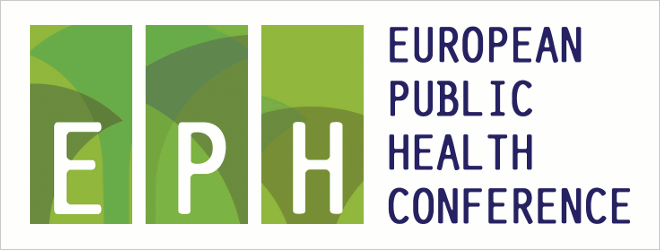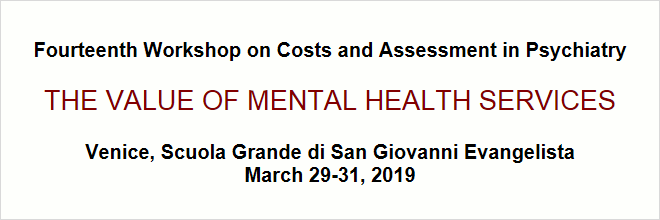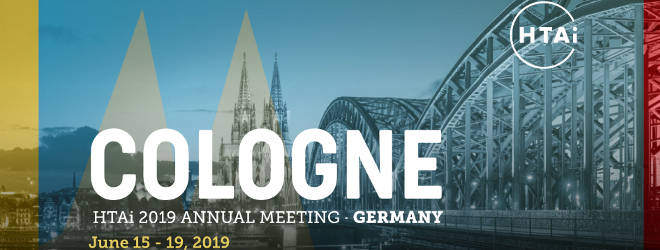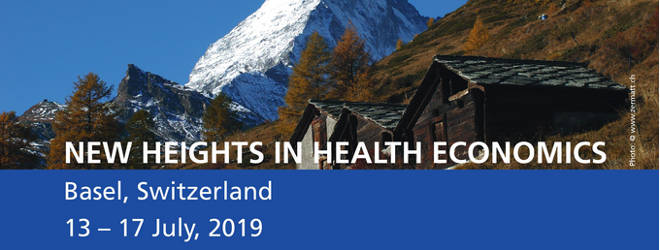PECUNIA Newsletter Issue Nº 1 | |
|---|
|
|---|
 |
 |
I am delighted to present to you our first PECUNIA newsletter. With this issue we would like to introduce you to our project and partners and give some insights into our work in the first ten months. PECUNIA is a three-year research project (2018-2020) funded by the European Commission under the Horizon 2020 programme and coordinated by the Medical University of Vienna. The ten partners from six European countries are joining forces to develop new standardised, harmonised and validated methods and tools for the assessment of costs and outcomes in European healthcare systems. In particular, we aim to improve the comparability of economic evaluations between and within countries, contribute to the standardised assessment of resource use, unit costs and outcomes while considering not only the healthcare sector impacts but also the inter-sectoral aspects (social care, criminal justice, education, productivity, patients and their families) of health services. PECUNIA is taking the feasibility of robust, comparable evidence generation through multi-sectoral, multi-country and multi-person health economic evaluations for decision making to a next level via a unique stepwise harmonisation process in our full work programme. All this is carried out focusing on mental health disease areas with major public health burdens such as depression, schizophrenia and PTSD. Beyond our primary objectives, our ultimate goal is the contribution to future efficient and equitable solutions in the prevention and treatment of mental health disorders through the involvement of and collaboration with a broad stakeholder group. In the first months of this project, we were happy to hold two successful project meetings in Vienna (Kick-off meeting) and Maastricht (1st Progress Meeting) where we laid the basis for achieving our first milestones – the concept paper and the country reports. This newsletter will give you more information on the progress we have made so far, our upcoming next steps and the events where the project will be presented in more detail. Thank you for your interest and support – and enjoy reading this newsletter! We also invite you to check out our website, follow us and share your thoughts on Twitter #Pecunia_EU and ResearchGate. Best regards, | |
|---|
|
|---|
| Prof. Judit Simon
PECUNIA Coordinator
Medizinische Universität Wien |
|---|
|
|---|
The ten PECUNIA partners bring complementary methodological expertise into the project and represent six different healthcare systems with varying feasibility and acceptability of economic evaluations in evidence-informed decision-making. Some countries have established national unit cost programmes (DE, NL, UK), while others are working with early-stage initiatives (AT, ES, HU). To achieve the largest possible impact and exploit the disruptive innovation potential for end users, decision makers, payers and the industry, we will continuously work in close collaboration with our Scientific Advisory Board and relevant stakeholders. | |
|---|
|
|---|
The PECUNIA project is driven by the mission to establish highly needed standardised costing and outcome assessment measures across many EU countries that will help diminishing unnecessary variations in the input cost and (health) outcome data of economic evaluations. As part of our harmonisation approach, our first undertaking is the development of the PECUNIA Concept Paper that brings together a methodological, taxonomical and conceptual framework. | |
|---|
|
|---|
Join our multi-sectoral expert survey | |
|---|
|
|---|
One aim of the PECUNIA project is to gain more insight in the comparability, relevance and importance of specific services and interventions in all investigated sectors for patients with mental health disorders across several EU countries. For this purpose, multi-sectoral national surveys in all PECUNIA countries (AT, DE, ES, HU, NL, UK) among sector-specific experts are conducted in November 2018. | |
|---|
|
|---|
 Are you an expert in your country in the health care, social care, criminal justice, education or employment sectors with a specific interest in mental health, or do you have special expertise with specific services for patients with mental health disorders and their families? Let us know your opinion or indicate your particular interest in participating in our expert survey! | |
|---|
| |
|---|
|
|---|

Following the invitation by the European Commission, Prof. Judit Simon will present PECUNIA in the course of the pre-conference “ARCH - Healing Buildings, Building Healing / Mental health across the life course” on November 28, 2018. Hosted by representatives of the EC Directorate Research and Innovation – Public Health and Neuroscience Sectors, the two sessions intend to trigger of a lively discussion on a future European research agenda on mental health. PECUNIA will be introduced in the session “Research on mental health throughout the life course – EU efforts and future needs”. | |
|---|
|
|---|

An update of PECUNIA activities and results will be presented at the workshop. We will inform you about details as soon as possible. | |
|---|
|
|---|

The PECUNIA partners have submitted several abstracts on intersectoral costs and benefits of interventions. More details will be provided once the conference programme is released. | |
|---|
|
|---|

In connection with the conference, PECUNIA is organising a satellite workshop, to which the Scientific Advisors and various stakeholders will be invited. The workshop aims at presenting and discussing the project results to experts of different sectors and countries. The event will take place on 17 July 2019, from 1-4pm in Basel. | |
|---|
|
|---|
Latest news from the field | |
|---|
|
|---|
Please let us know if you would like to share any interesting news from the field in our next newsletter by contacting Lisa Heinemann. | |
|---|
|
|---|
If you have any questions regarding the PECUNIA project or suggestions for our newsletter, feel free to get in touch! We are looking forward to receiving your feedback. | |
|---|
|
|---|
Coordination
Medizinische Universität Wien
Prof. Judit Simon
judit.simon@muv.ac.at |
|---|
| Management
EURICE – European Research and Project Office GmbH
Lisa Heinemann
l.heinemann@eurice.eu |
|---|
|
|---|
Copyright © 2018 PECUNIA project, All rights reserved. | |
|---|
|
|---|
| | This project has received funding from the European Union’s Horizon 2020 research and innovation programme under grant agreement No 779292. |
|---|
|
|---|
|
|